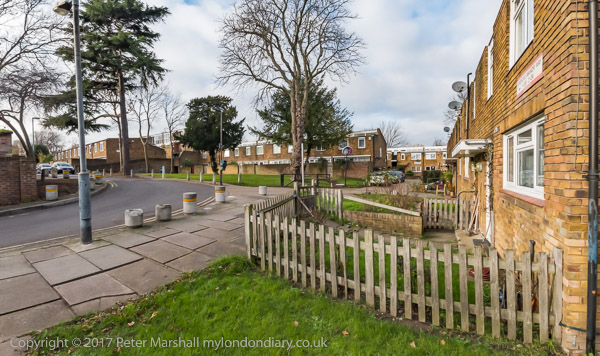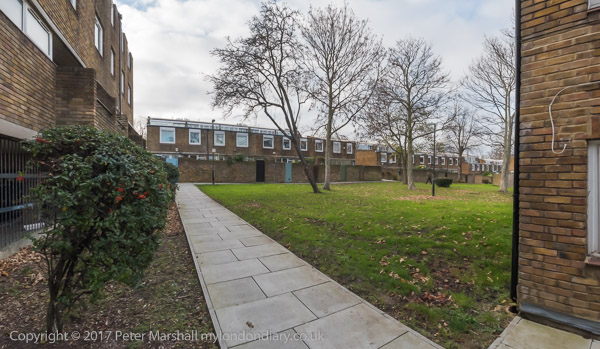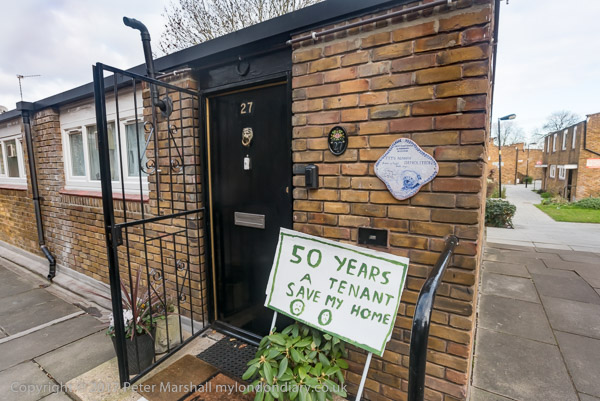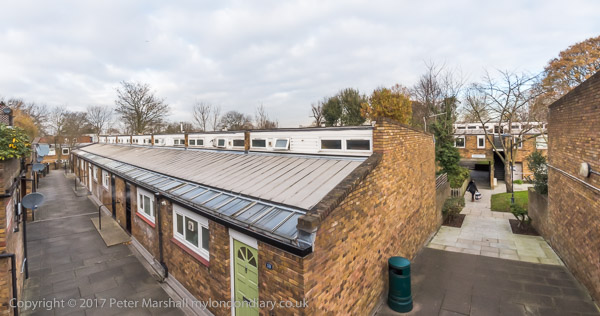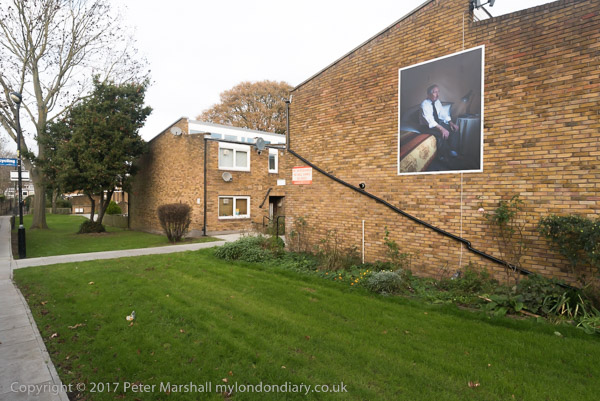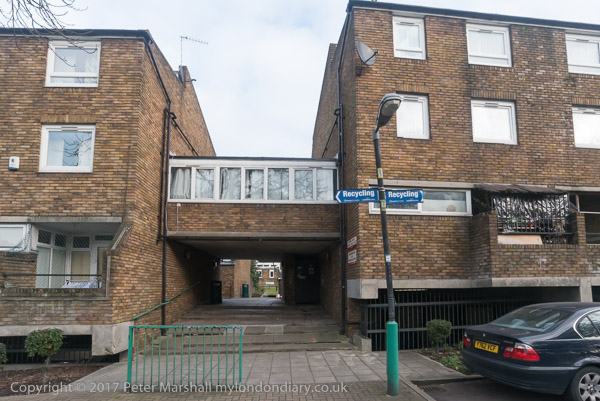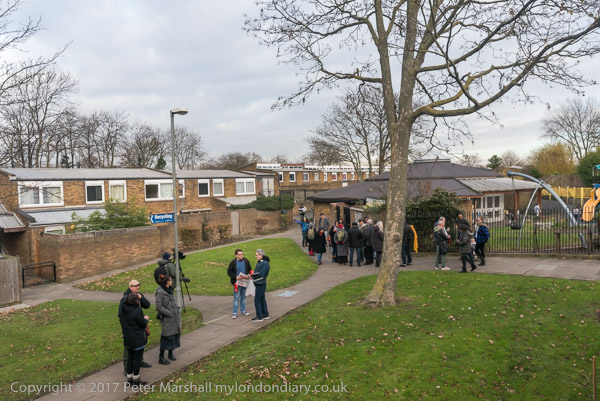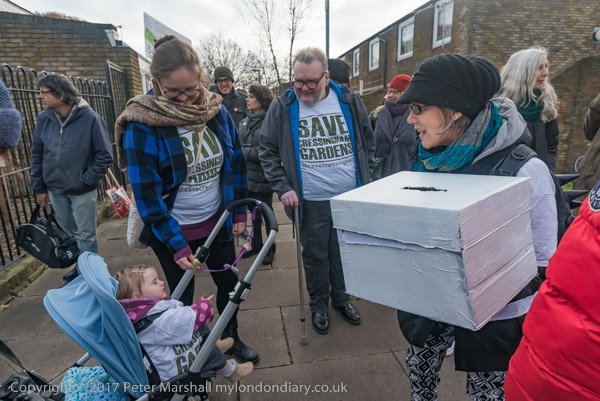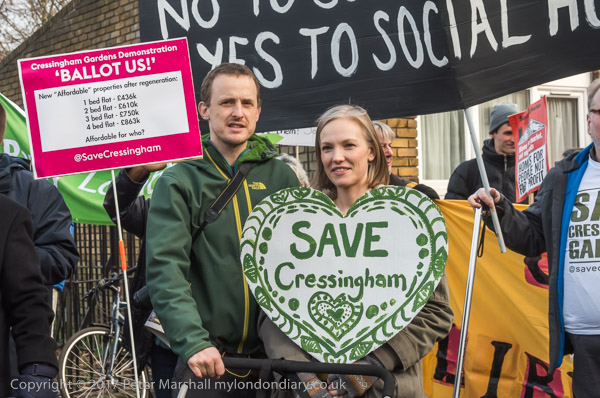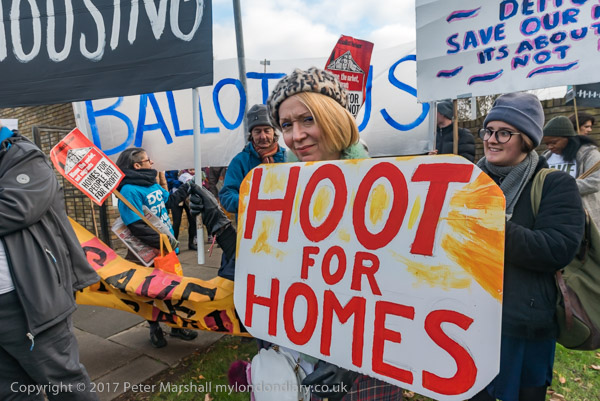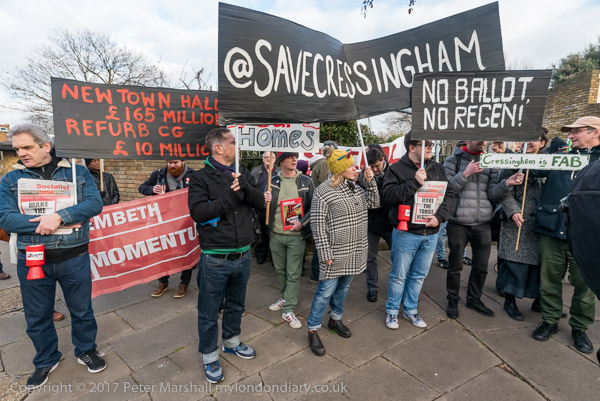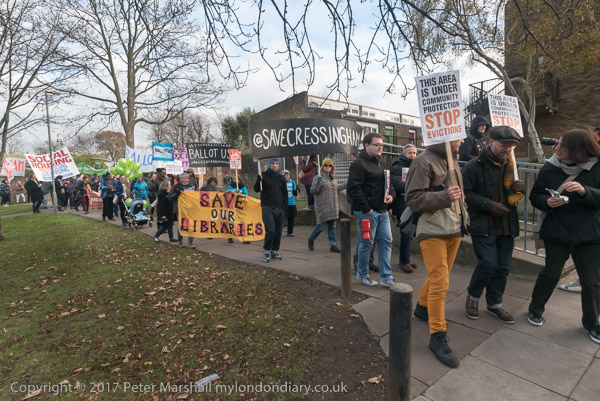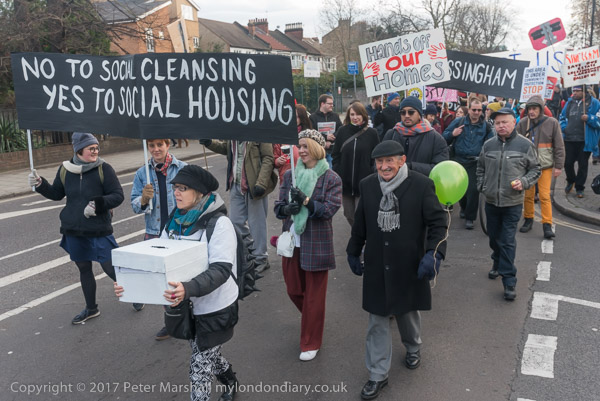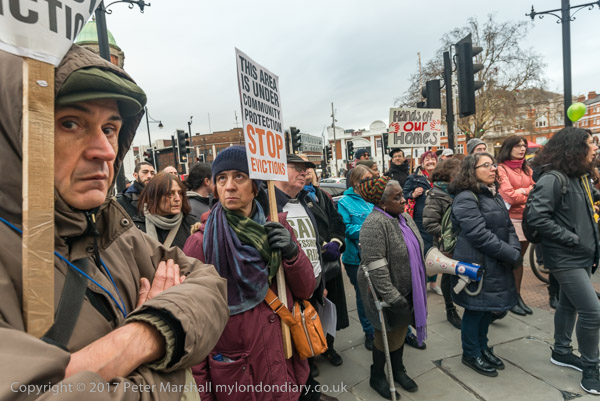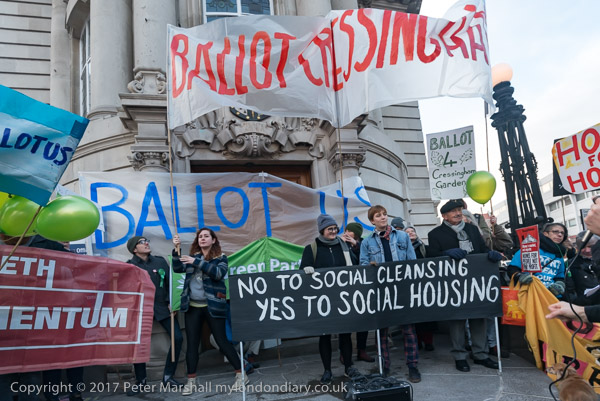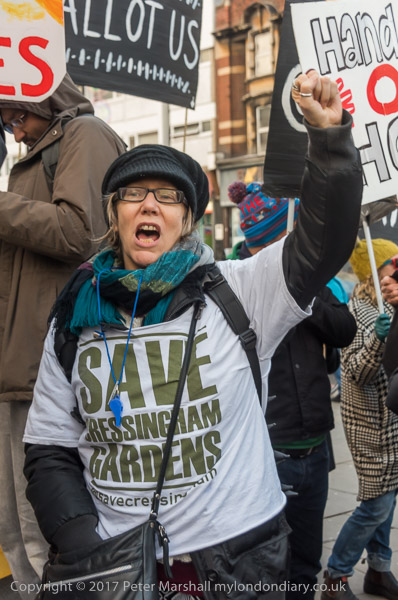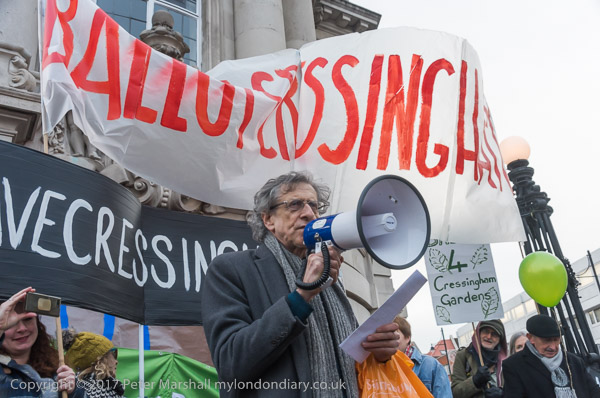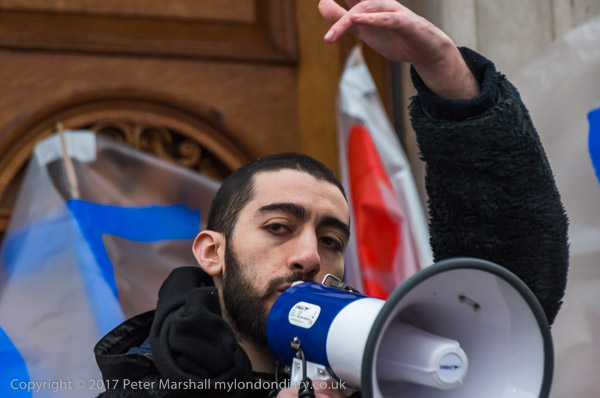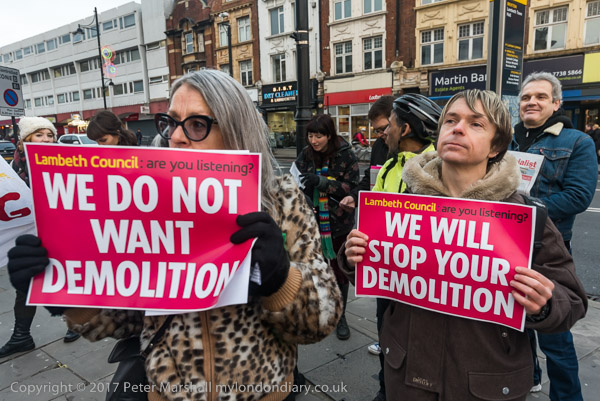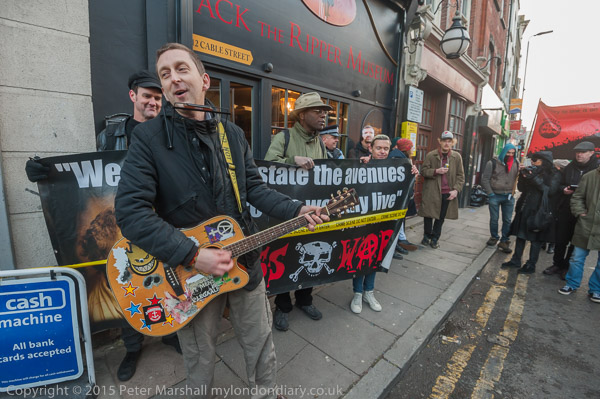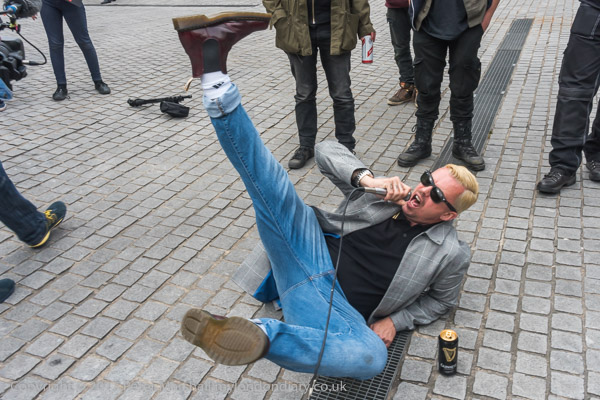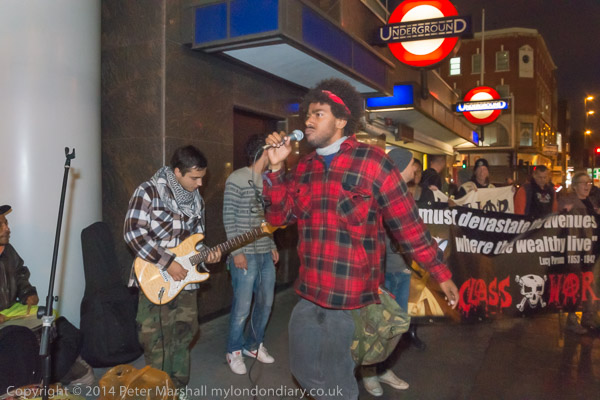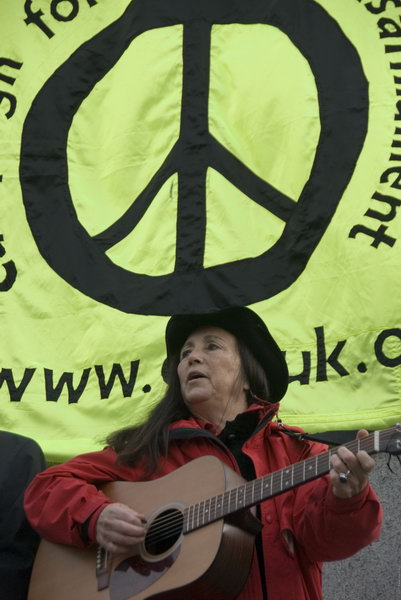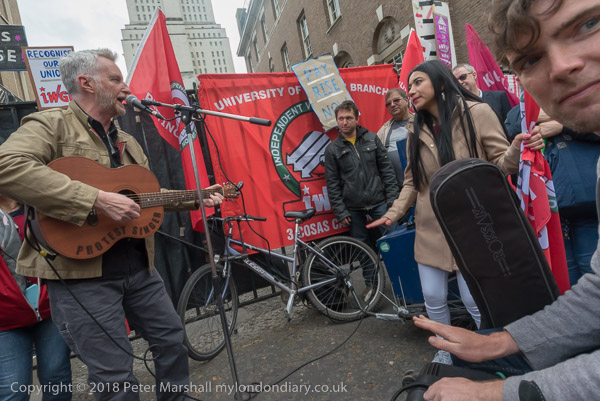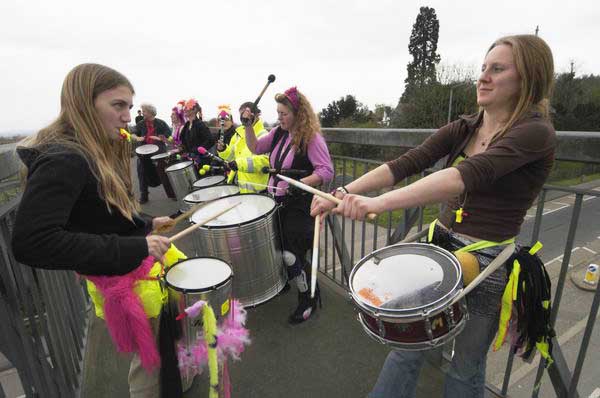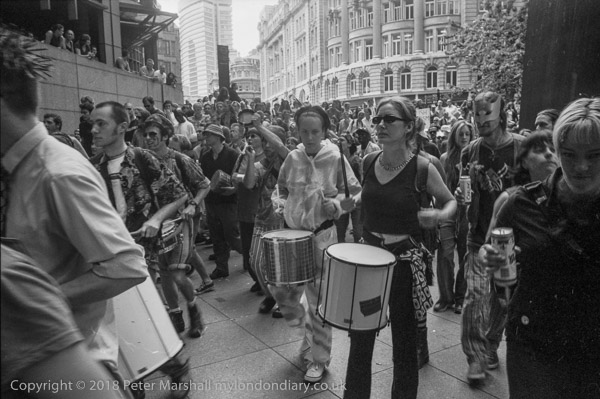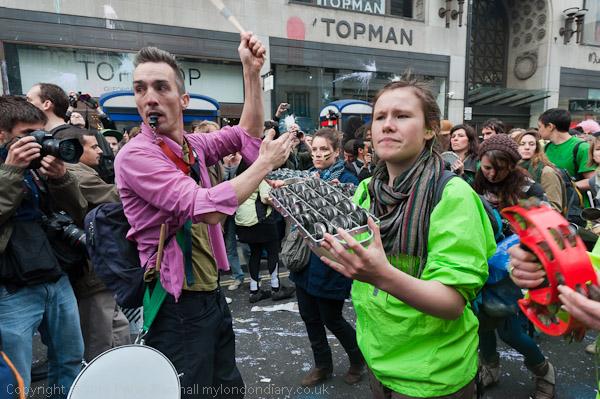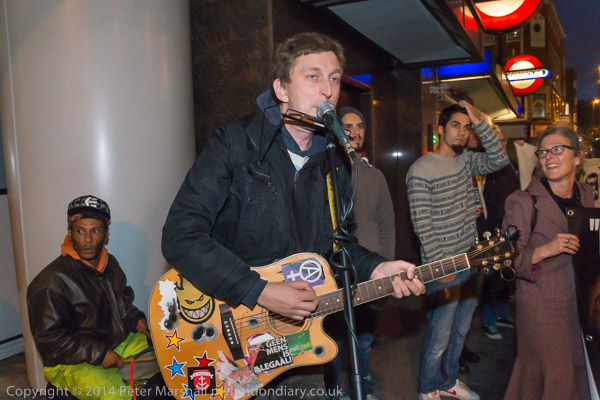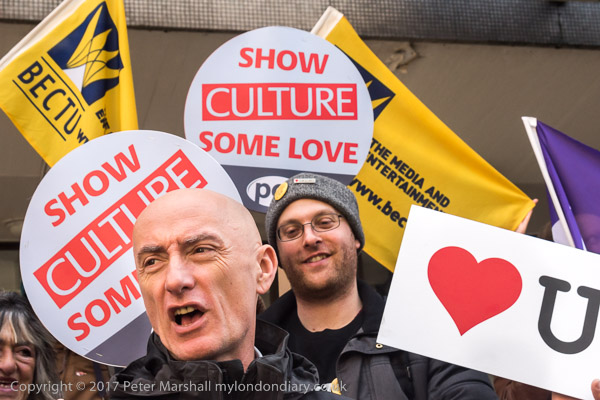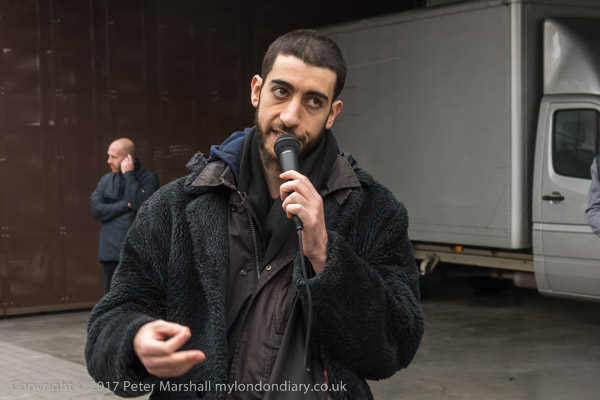Save Brixton Arches: 3rd Anniversary Action. On Sunday 4th February 2018 campaigners marked the third anniversary of the announcement by Network Rail of their plans to redevelop the Brixton Arches with a rally and a three minute silence.
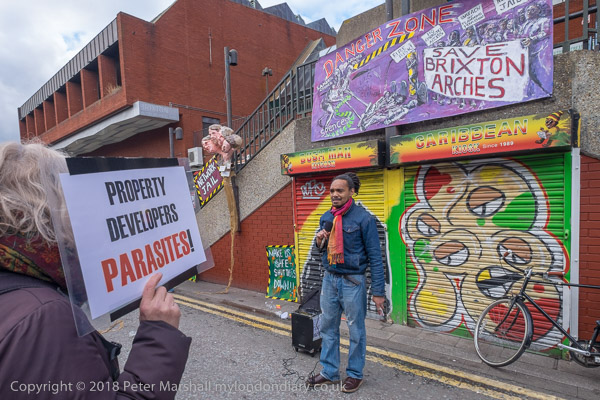
Railway Arches are an incredibly important part of our towns and cities. When the railways were being built in the 19th century putting the lines on viaducts was a cheaper option for the railway developers than laying tracks at ground level, so we got long viaducts coming into the centre of London and elsewhere.
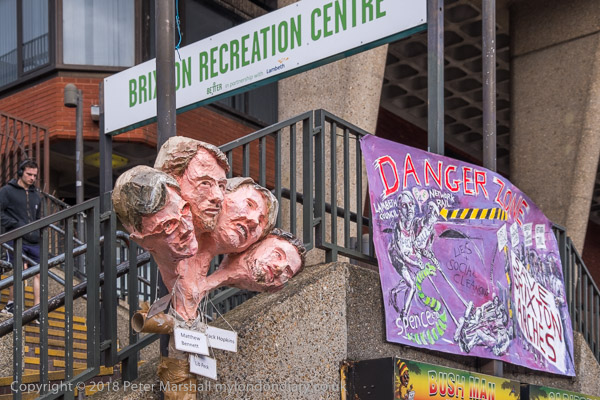
These arches became both an important feature of the city landscape but also a dynamic boost to the economy, providing low-cost premises for small businesses to start and grow until they needed to move out to larger premises and new generations of businesses would take over these spaces. In particular they provided premises for various car repair companies and in more recent years small breweries. And in Brixton in particular a large range of low-cost shops.
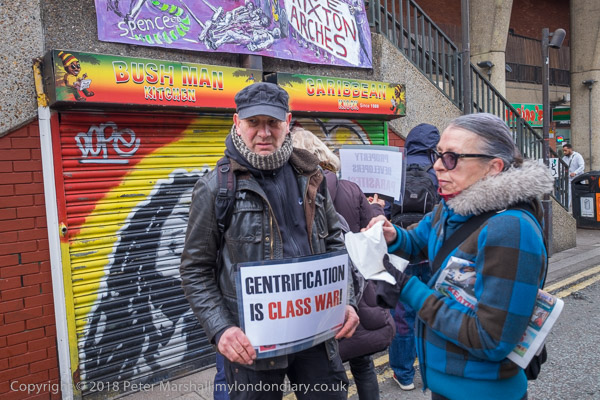
The arches used to belong to the railway companies, and on privatisation passed to Network Rail. But around a dozen years ago Network Rail saw the potential of selling them off to the private sector. The arches were a relatively small earner for them, bringing in a little over £80 million a year in rents.
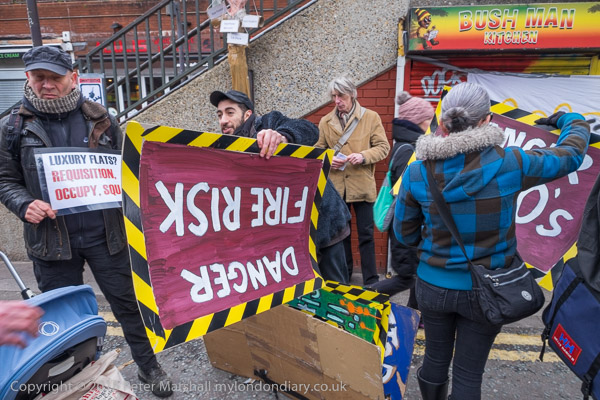
They offered 150 year leases to the private sector, at first without any consultation with the businesses and communities served by them, something the sale for £1.46 billion was criticised for in a 2019 report from the National Audit Office. Network Rail retained the freehold so they can continue to have access to the arches if they need. The rents for the arches were expected to increase by 54% over the next 3 or 4 years, making them too expensive for many tenants.
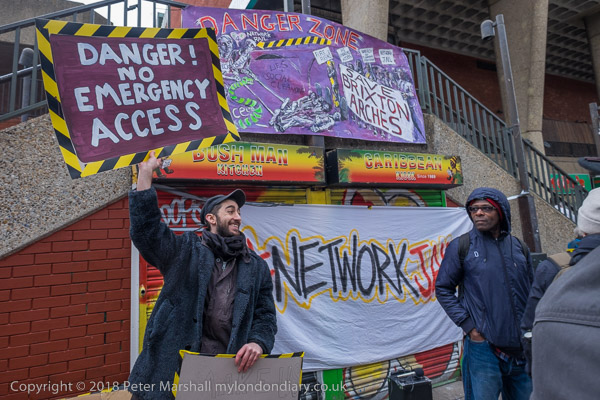
Also in 2019, the House of Commons public accounts committee criticised both Network Rail and the Dept of Transport for the sale which means “future tenants have fewer rights – and existing tenants no longer have an option to extend their leases.”
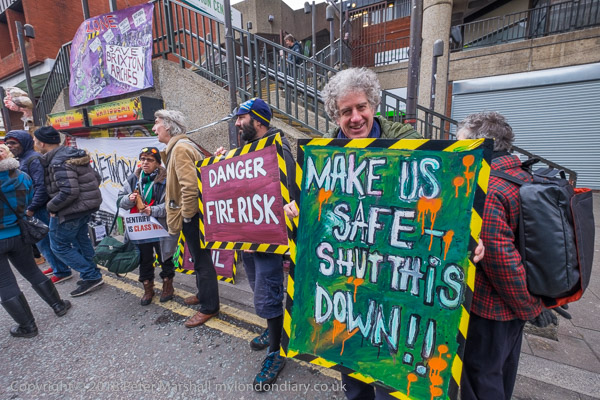
Committee Chair Meg Hillier is quoted in The Guardian as saying “Ultimately, government took a short-term decision to sell a profitable asset to plug a funding gap. We remain unconvinced that the sale represents the best value for the public and the public-sector finances in the long term.“
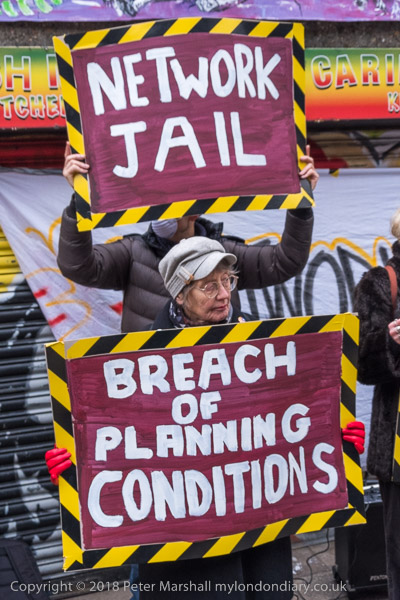
Brixton has been particularly hard hit by Network Rail’s plans to make more cash from the arches as those along Atlantic Road and Brixton Station Road were an important shopping area in the centre of the town – often described as the ‘heart of Brixton‘.
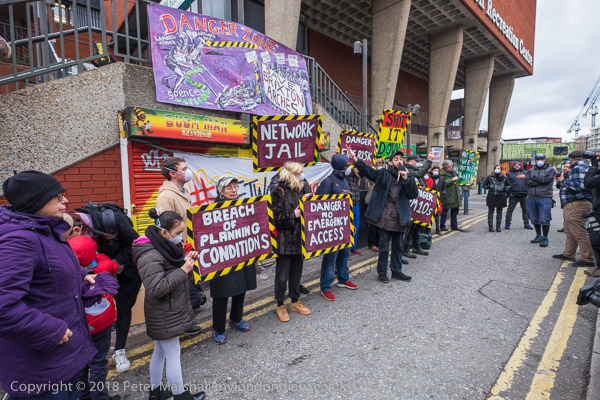
Network Rail ganged up with Lambeth Council to tear this heart out from the town by refurbishing thes arches which would enable them to “triple the rents, insert shiny new businesses and provide Brixton with even more over-priced bars and restaurants than the town’s citizens can shake a stick at.”
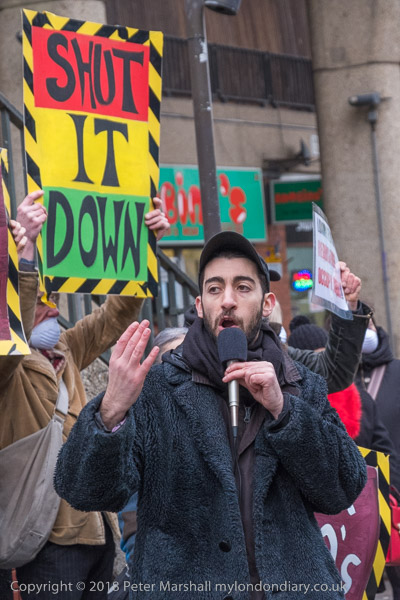
The Council ignored a long campaign to keep the arches, and failed to do anything to protect the interests of the tenants or of nearby market traders who feel they will be adversely effected while the refurbishment is taking place – and with possible dangers to the general public from potentially dangerous airborne particles during the removal of asbestos.
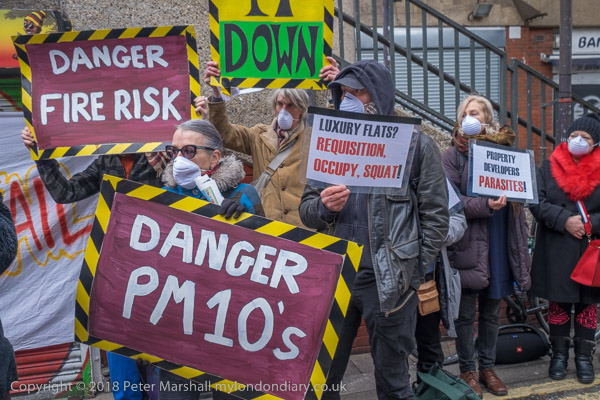
The work was supposed to have been completed by the end of 2016, but was only started the day after this protest in February 2018. The Save Brixton Arches campaign were calling for it to be abandoned as the plans for the work fail to include proper fire safety precautions and will severely restrict access by emergency services to local businesses and the railway and station.
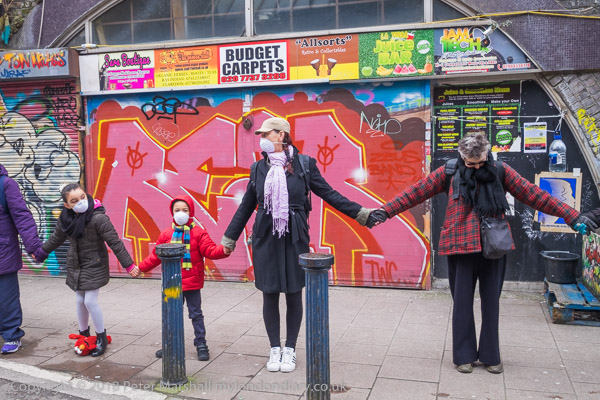
They also called for an investigation into local Labour MP Helen Hayes. Until shortly before she was elected in 2015 she had been a senior partner in the firm Allies & Morrison which had made the recommendation for the ‘improvement’ of the arches in 2013, though she has denied any personal involvement. A&M have been involved in many contentious ‘regeneration’ schemes with developers and councils across London which opponents describe as social cleansing.
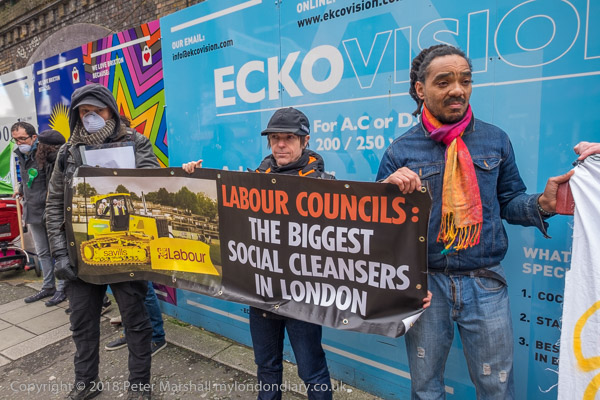
Network Rail sold its arches to ‘The Arch Company’. 50% owned by US-based private equity firm Blackstone and TT Group, one of the UK’s largest, privately owned property investment firms who since then as well as raising rents have refurbished 1,400 arches. They have also made some efforts to reduce the impacts of the rent rises and negotiated a tenant charter. Blackstone are now said to be ‘on track’ to buy out TT and take full control of the arches.
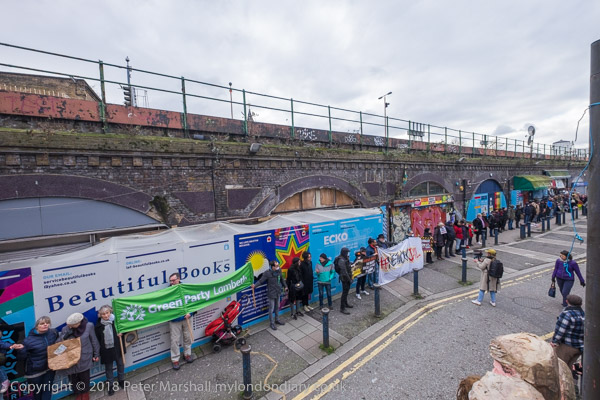
More about the protest and many more pictures at Save Brixton Arches: 3rd Anniversary Action.
Flickr – Facebook – My London Diary – Hull Photos – Lea Valley – Paris
London’s Industrial Heritage – London Photos
All photographs on this page are copyright © Peter Marshall.
Contact me to buy prints or licence to reproduce.
